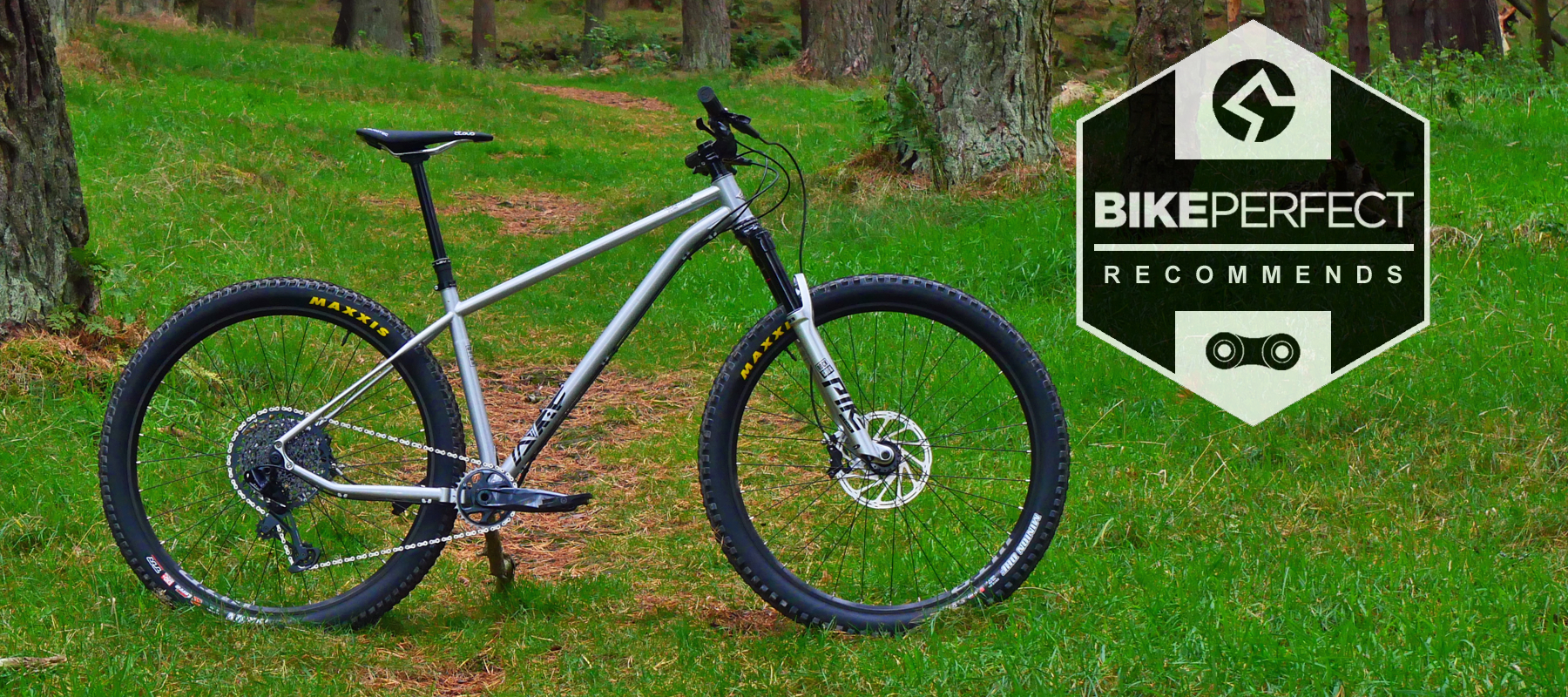Bike Perfect Verdict
The Stif Squatch is an aggressive and very capable hardtail that's full of surprises, most of which are good.
Pros
- +
Stable and controlled descender
- +
Agile and confident cornering
- +
Surprisingly quick on climbs
- +
Forgiving flattened seat stays and ovalized top tube
- +
Excellent build kit
Cons
- -
Delicate paint
- -
Prone to pedal strikes when climbing
- -
Rekon tire lacks traction on slick trails
- -
Steep seat angle limits trail commuting comfort
- -
Only one bottle cage
Why trust BikePerfect
The Squatch is an aggressive steel 29er hardtail from the Yorkshire-based bike shop Stif. It follows on from the brand's popular 27.5in wheeled Morph hardtail, designed as a do-it-all bike adding bigger wheels and getting a contemporary geometry makeover to match.
The result is a bike that Stif boldly claims to be “more fun to ride than any other hardtail on the market”. After putting it to some serious testing there's no doubt it's “Well Bastard Fast” – their words, not ours – and if you can live with its quirks, the Stif Squatch could be one of the best hardtail mountain bikes around.
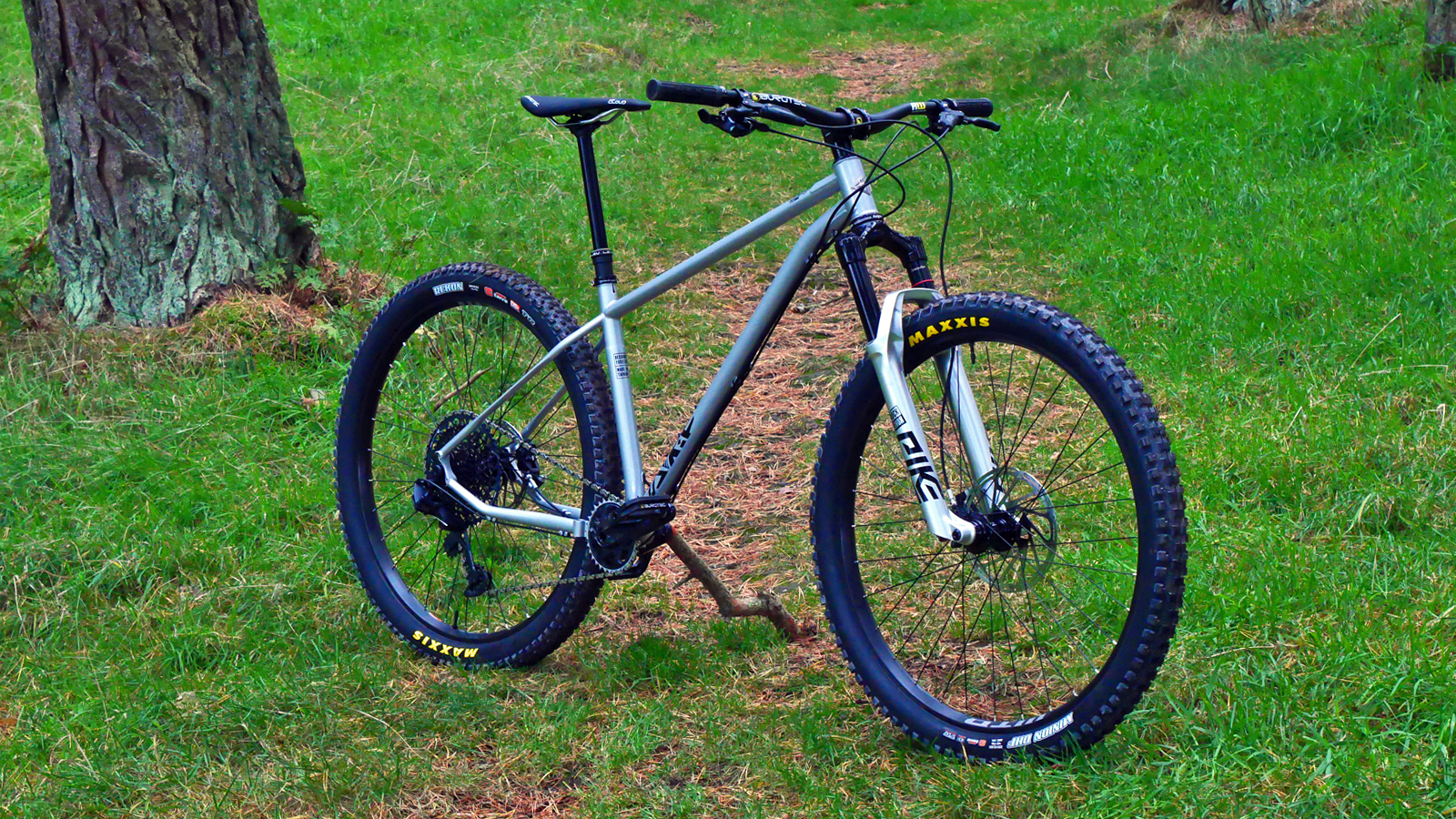
Design and geometry
Designed in Yorkshire and built in Taiwan, the frames use bespoke 4130 chromoly steel tubing and feature plenty of crafty custom tube shaping in order for Stif to make sure the Squatch rides as they intend it to.
A lot of consideration has clearly gone into the frame construction as well. The beautifully flattened seat stays connected to the low-slung ovalized top tube have been designed to filter out trail chatter without sacrificing lateral stiffness. Also at the rear, the ‘12 Bore’ chainstay yolk is constructed using a plate and two vertical tube sections meaning there is plenty of clearance to fit a 34t chainring and 2.6in tire even with the slammed 430mm rear stays. The seat tube is curved as it leaves the bottom bracket, this also helps add tire clearance and gives the Squach its steep 78-degree seat angle at full extension, which then further steepens as the saddle gets lower.
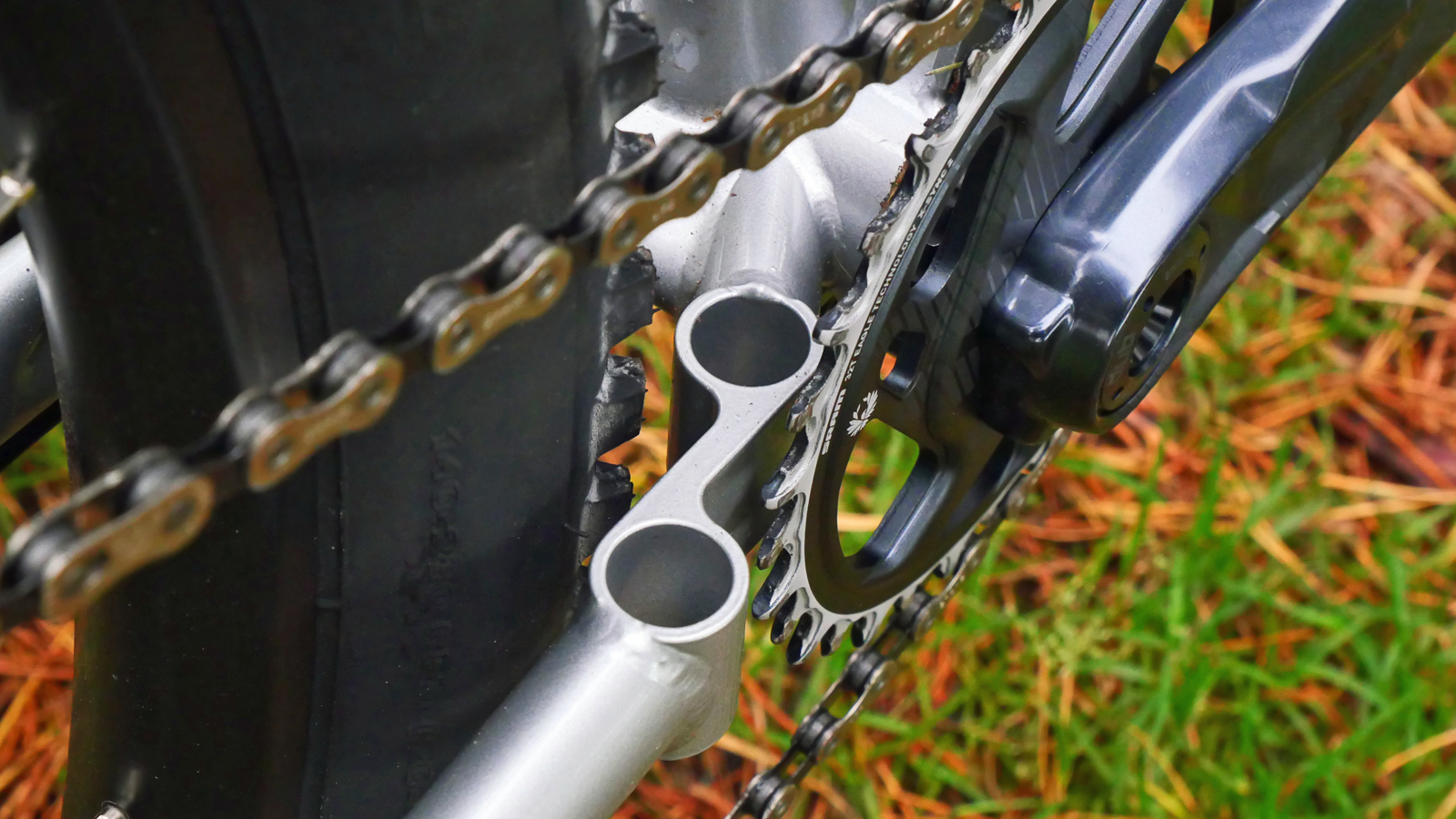
Geometry is progressive, featuring a 64-degree head angle, 480mm reach, and 1228mm wheelbase for our size large test bike. The most notable geometry figure though is the bottom bracket drop which is slammed at 80mm. Low top tubes and long droppers mean there’s some space to size up or down, although Stif only offers medium, large, and XL sizes so riders under 5ft 5in unfortunately aren't catered for.
There's only a single bottle cage mount on the downtube, I’d like to see a second but considering the type of riding the Squatch is intended for carrying lots of water isn't really a necessity. Cable routing is externally fed down the underside of the downtube and chainstays, the only exception is the dropper which feeds into the seat tube. Home mechanics will rejoice and the cable organization is decent, although I did notice that there were some wear points around the bottom of the headtube.
You can buy the frame on its own for £649 or opt for one of the three builds, the base AM kit (£2,099) with Rockshox Pike Select+ and SRAM NX, the Pro Kit (£2,749) I have been riding, or Pro Reserve Kit (£3,699) which rolls on Reserve 30 SL carbon wheels. The frame comes in either Bone, Silver, or Teal paint options, my test bike looks great in silver although I noticed the paint was prone to scuffs and rub marks so don't expect it to stay nice for long.
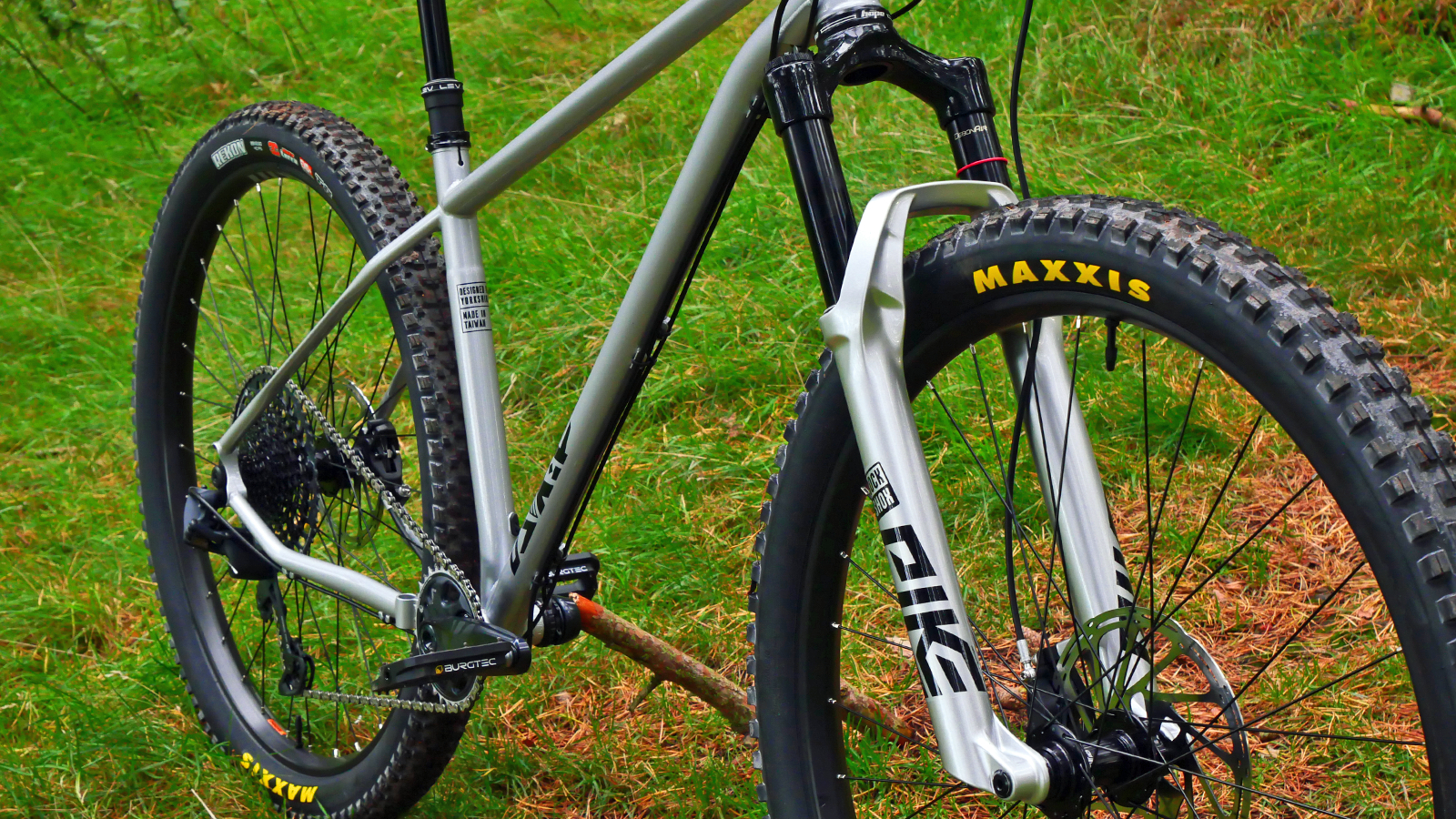
Components and build
The Pro Kit build is a fair chunk of cash as you could choose from one of the best budget full-suspension bikes these days for the same money.
Saying that the Stif Squatch Pro Kit build has a super dialed spec sheet that is ready to shred from day one. Stif has invested in the forks, speccing a 130mm RockShox Pike Ultimate upfront which has plenty of bump control, adjustment and build stiffness from its 35mm chassis. SRAM handles the going and stopping with a SRAM GX Eagle drivetrain and SRAM G2 RSC which bite on a 200mm front rotor and 180mm rear. There's a KS Lev Integra dropper and you can opt for either a 175mm or 200mm when ordering directly from Stif.
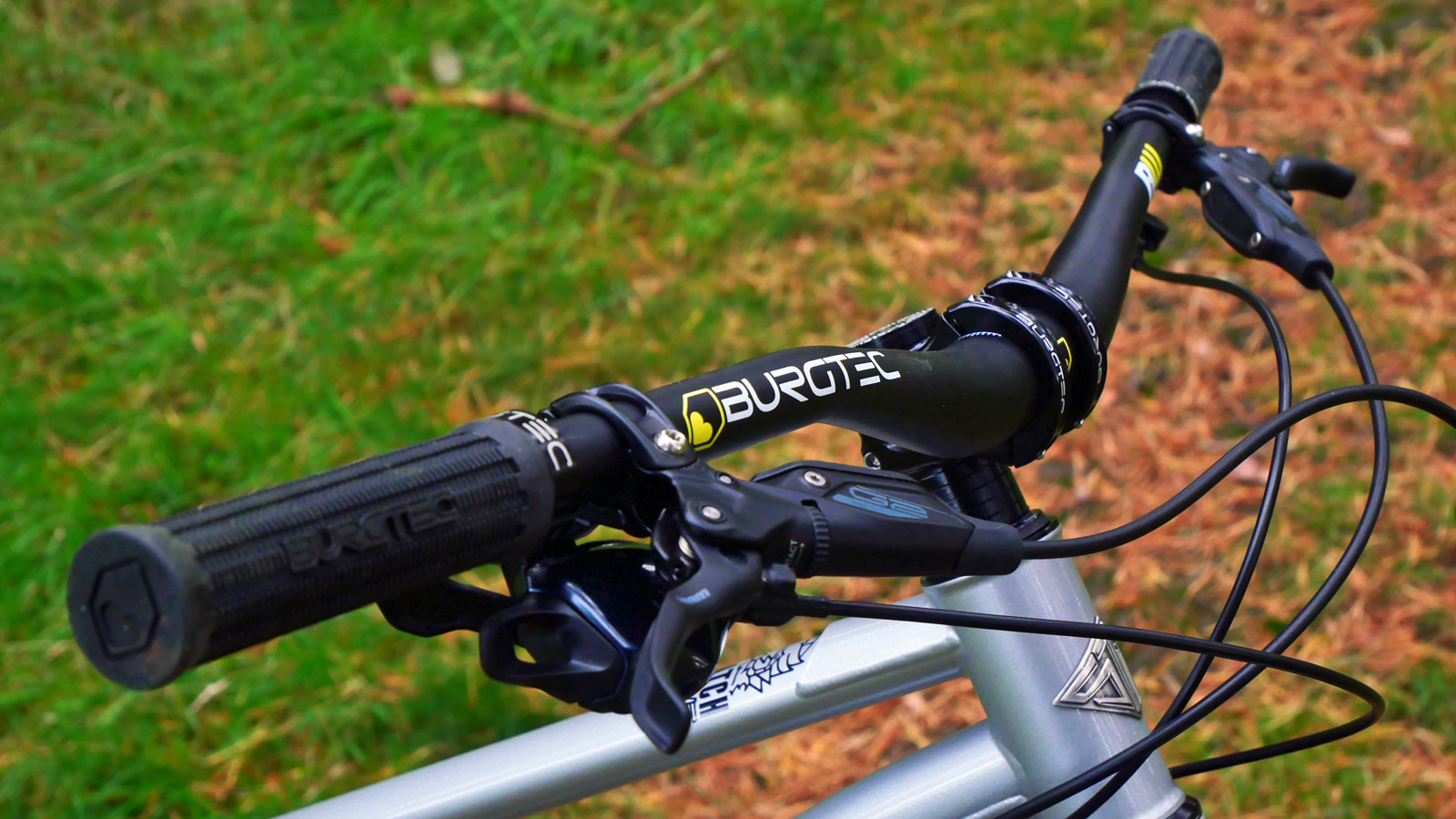
The rest of the bike has a proper custom build feel rather than an off-the-shelf bike. No corners have been cut with details like the Hope headset, Hope hubs, and full Burgetec finishing kit. Stif even includes a set of grippy Burgtec Penthouse Mk4 Composite pedals with the bike too.
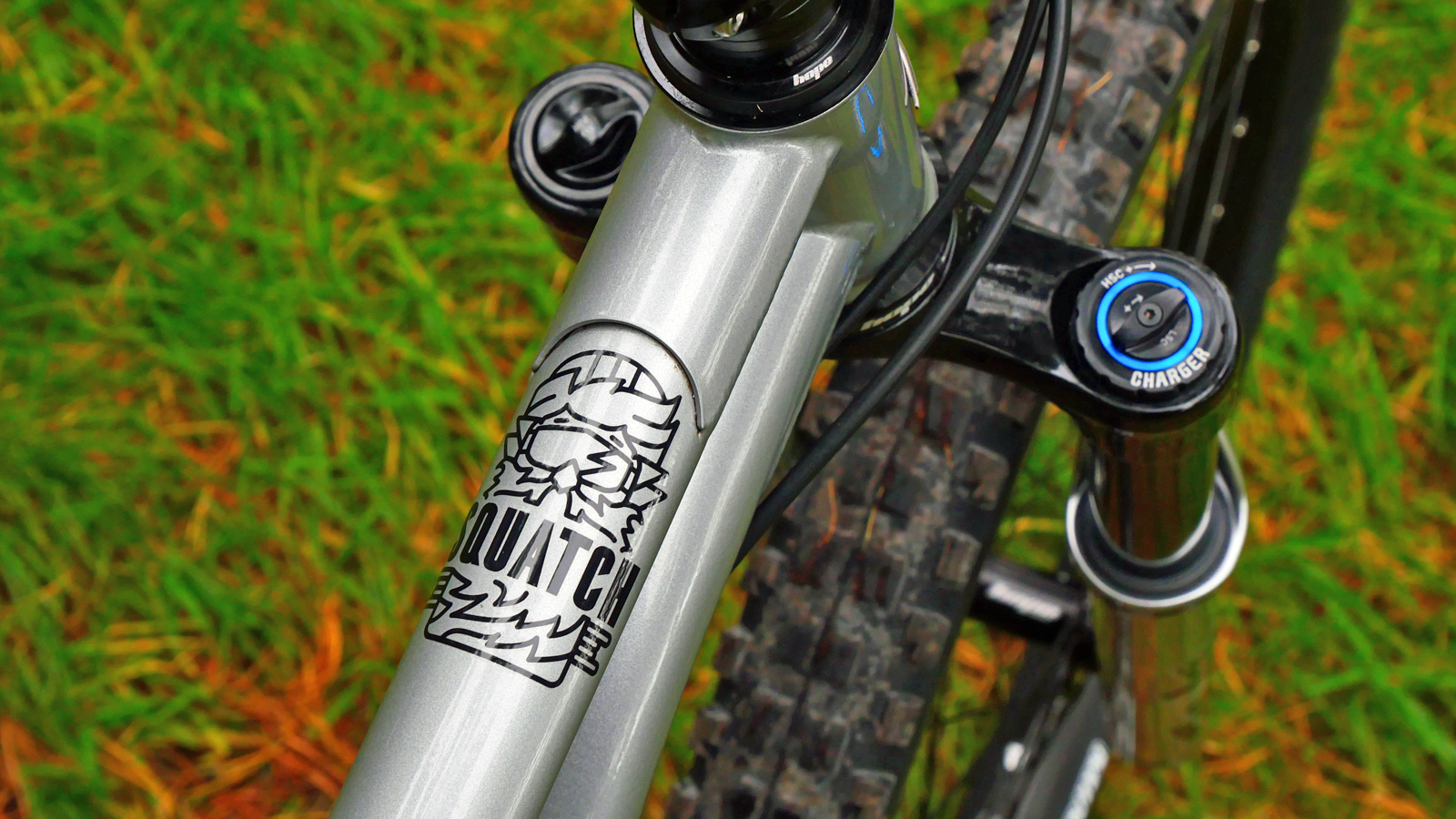
Ride, handling and performance
The Squatch is a very single-minded bike, only interested in riding descents and getting back to the top to ride them again faster. Assuming there's a bit of gravity or flow to help you along, it really surprises and delights on any trail too.
Drop into a descent and the low bottom bracket combined with the short rear end maximizes agility. With my feet low down I felt I was properly positioned within the bike and the Squatch rails corners so hard it takes a while to recalibrate the speed so you can change direction. The cockpit is plenty roomy as well with a 480mm reach giving more than enough space to throw your weight around when hooking corners. Even on very familiar trails I would hit a corner feeling like I was flat out, only to exit wishing I had stayed off the brakes just a little more.
The Squatch is not just fast in the corners either, that low center of gravity, long geometry, and a reasonably soothing frame result in the bike being very fast and stable in a straight line. I’m not talking fast for a hardtail either, the poise and stability of the Squatch mean it's following the lines and biting on the heels of full-suspension bikes too, assuming you can hold your nerve.
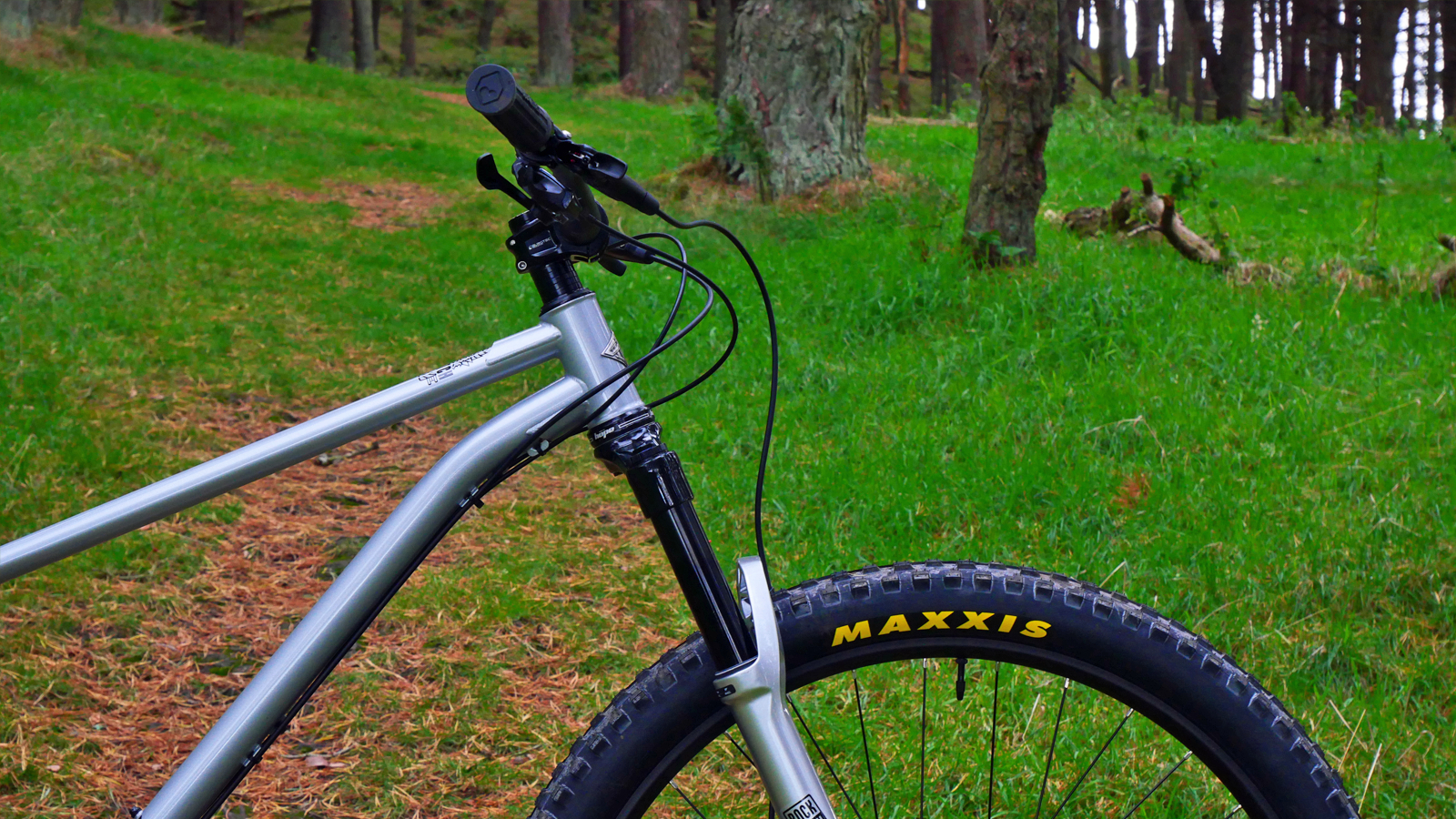
The geometry obviously works very well for its intended use, getting to the top and having a riot on the way back down. However, riding seated on the flat feels very perched, although it doesn’t seem to slow the bike down much. The resulting position isn’t the most comfortable along level sections as it puts a bit more pressure on the hands, I think this is far from a deal breaker but it's worth considering if you like to do longer rides. The seat angle comes into its own when riding steep inclines and the very on-top ride position not only helps keep front-end lift in check but also maintains rear wheel traction.
Unfortunately, the very low bottom bracket height really works against the steep seat angle scrambling abilities, and even on mellower climbs I grounded the cranks out on sections that have never previously been a consideration. The 80mm bottom bracket drop is so extreme that even switching to an ultra-short crank like Hope’s 155mm Evos wouldn't negate the issue as your pedals would still be lower than most other bikes at the bottom of their stroke. That said, I never had any pedal strike issues on the descents.
Stay away from the technical climbing trails in favor of steep fire road spin-ups and the Squatch was impressively fast and efficient at delivering me to the top for a burly steel hardtail.
It's not just the geometry that makes the Squatch such a surprisingly efficient climber but also the rear tire. It makes a lot of sense why Stif has specced a Maxxis Rekon on the rear. Opting for a faster rear tire not only gives the bike a huge bump in rolling speed but also delivers a surprising amount of grip and rip in dry to intermediate conditions.
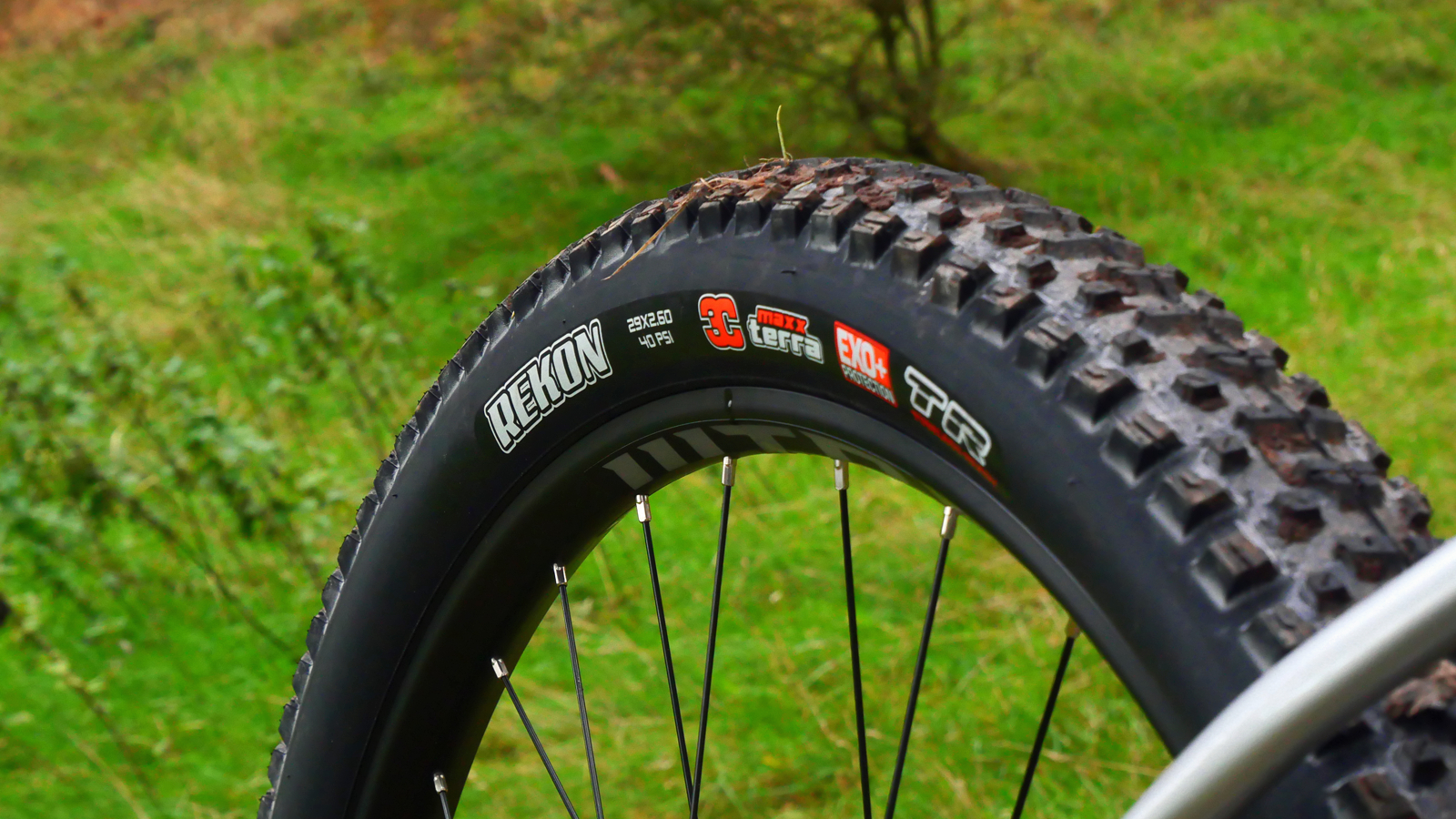
In loose conditions, the Squatch gives a rowdy riding experience encouraging you to load the front wheel, let the rear wheel hang out, and slam the bike into corners. It’s not a slide-and-pray situation either, perfect weight balance makes the outwardly wild-appearing ride feel extremely under control, and quickly I was slashing from one corner to the next with rally car-like precision.
Unsurprisingly, the Rekon started working against me when the trails were muddy and greasy especially as hardtails aren’t known for their rear wheel tracking on rough terrain. While a break in rear wheel traction might spice up a local loamer rut track or tech shale line, when riding proper fast, steep, or off-camber terrain in greasy conditions, I was yearning for something a bit grippier.
The same can be said when climbing steep inclines, if the trail conditions were soft the Rekon really struggled to bite into the ground as the tread quickly became swapped and clogged. Chuck on something like a Minion DHR with its deep horizontal center paddles and as long as you can still turn the pedals, the Squatch will climb any incline.
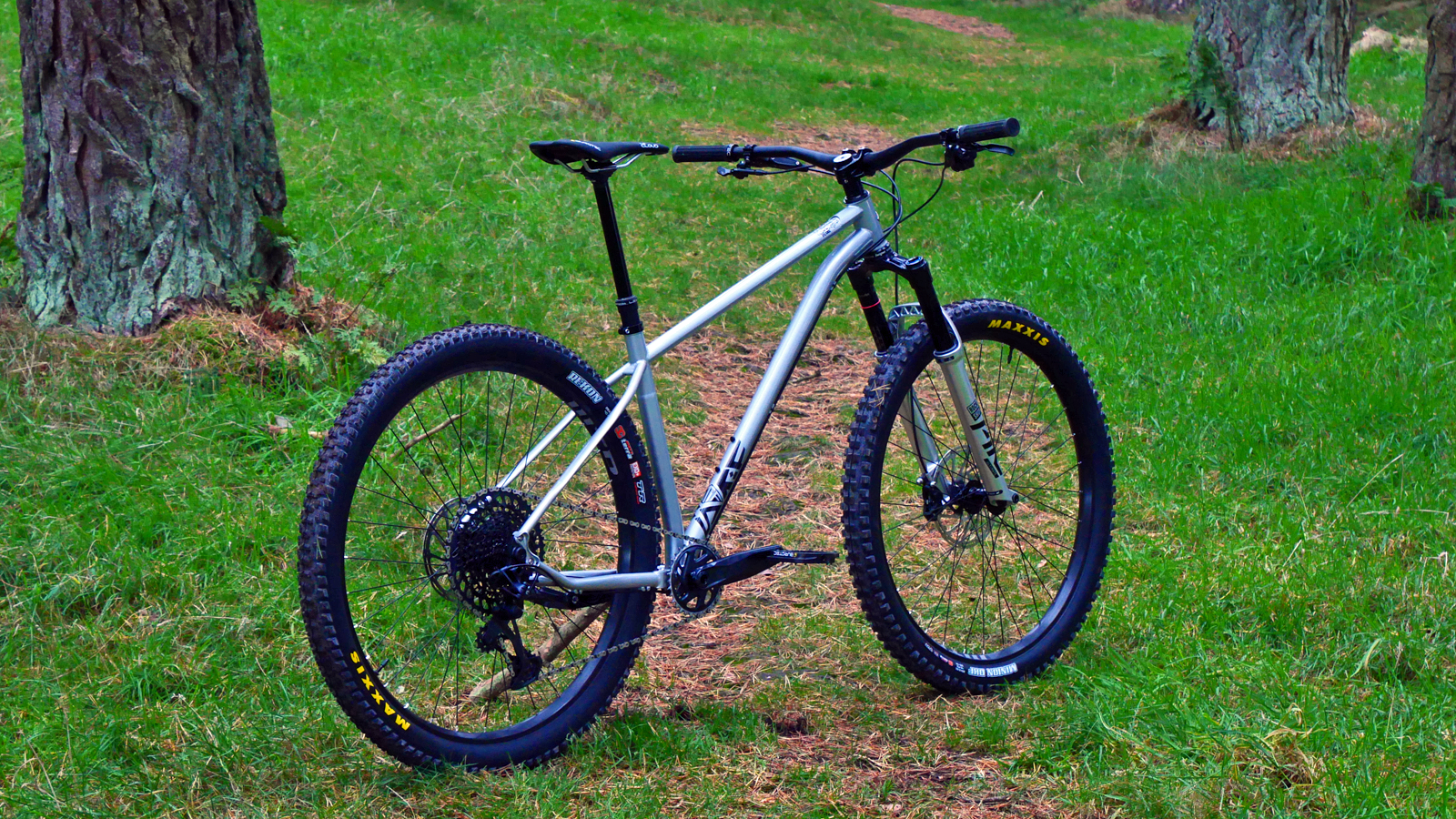
Verdict
The Stif Squatch is a riot on every descent, the aggressive geometry is dialed in for dropping into properly gnarly trails yet it doesn’t feel underwhelming or dull on mellower flow trails either. A low center of gravity and short chainstays mean cornering speed is spectacular too and, if you're brave enough to hold on, the slack angles, long reach, forgiving rear end, and sorted suspension will happily have you riding faster than you would expect on a hardtail.
The steep seat angle puts you in a really good place for steep climbs, although there’s a lot more crank consideration needed if the surfaces get lumpy. The same position isn’t great on the flat either, but the Squatch isn’t really about that anyway. On smoother access trails and less technical singletrack, it can really motor to the top ready for another run.
I liked the Rekon rear tire but if you regularly ride in sloppy conditions then it's worth factoring in something a little grippier for more control. Otherwise, the spec is totally sorted as well.
Tech spec: Stif Squatch Pro Kit
- Price: $N/A / £2,749.00
- Discipline: Trail/Enduro
- Frame: Custom 4130 chromoly steel tubing
- Head angle: 64 degrees
- Seat tube angle: 78 degrees
- Reach: 480mm (large tested)
- Fork: Rockshox Pike Ultimate, 130mm travel, 42mm offset
- Wheels: WTB KOM Trail i30 rims with Hope Pro 4 hubs
- Tires: Maxxis Minion DHF 29 x 2.6in front and Maxxis Rekon 29 x 2.6 rear tire
- Drivetrain: SRAM GX Eagle, 10-52 teeth 12-speed cassette
- Brakes: SRAM G2 RSC / SRAM Centerline Rotors (200/180)
- Seat post: KS Lev Integra with Matchmaker Southpaw - 175mm or 200mm
- Saddle: Burgtec Cloud - Chromo Rail
- Bar: Burgtec Enduro 30mm Rise / 800mm Wide
- Stem: Burgtec Enduro MK3 - 35mm Clamp / 35mm Reach
- Sizes: Medium, Large (tested), Extra Large
- Weight: 14.2kg

Graham Cottingham joined the BikePerfect team as our senior tech writer in 2020. With over 20 years of riding experience, he has dabbled in downhill, enduro, and gravel racing. Not afraid of a challenge, Graham has embraced bikepacking over the last few years and likes nothing more than strapping some bags to his bike and covering big miles to explore Scotland's wildernesses. When he isn’t shredding the gnar in the Tweed Valley, sleeping in bushes, or tinkering with bikes, he is writing tech reviews for BikePerfect.
Rides: Cotic SolarisMax, Stooge MK4, 24 Bicycles Le Toy 3, Surly Steamroller
Height: 177cm
Weight: 71kg
